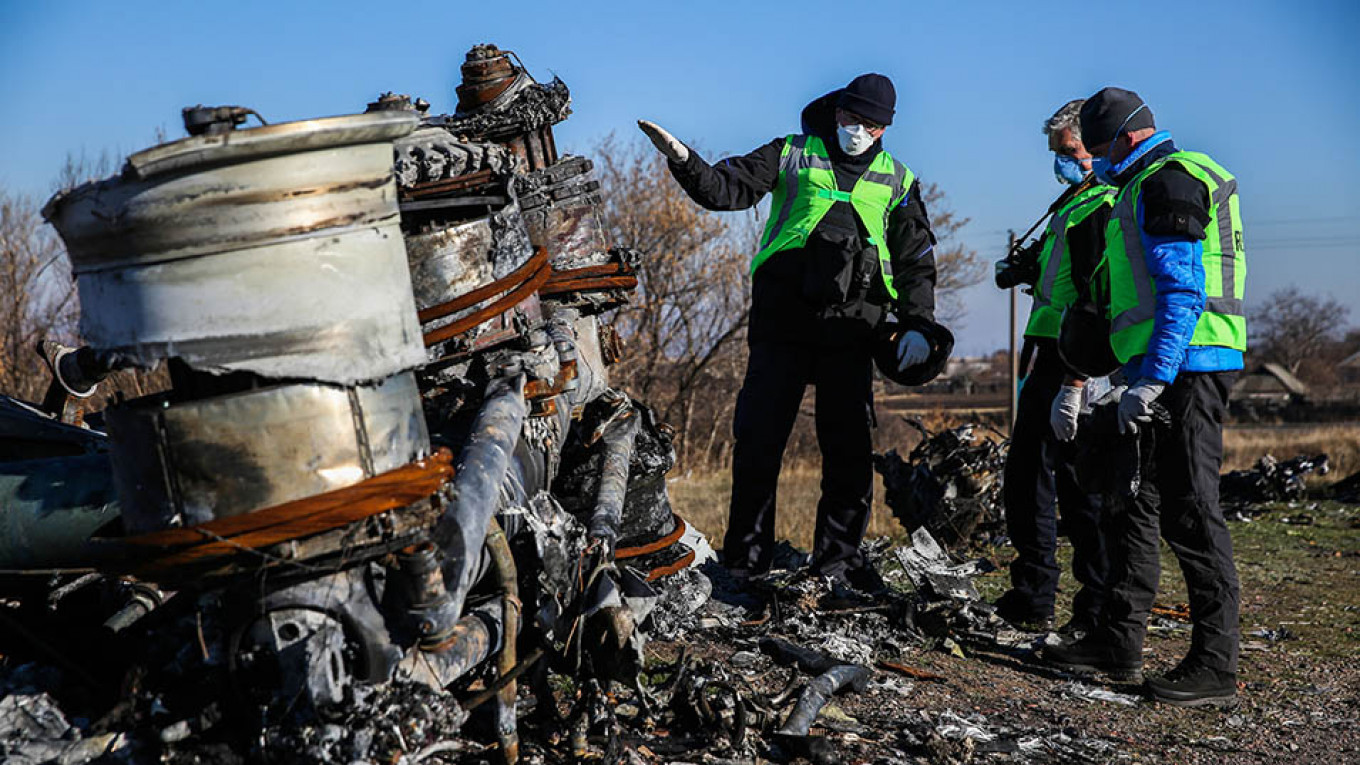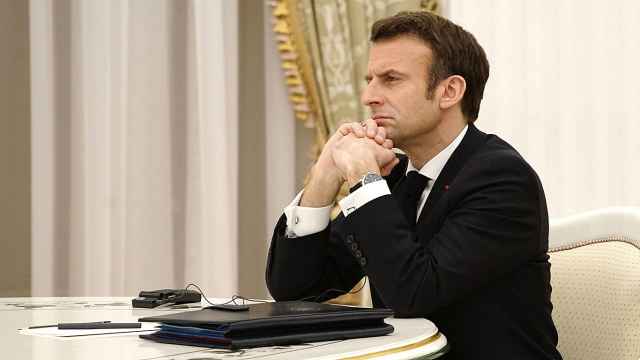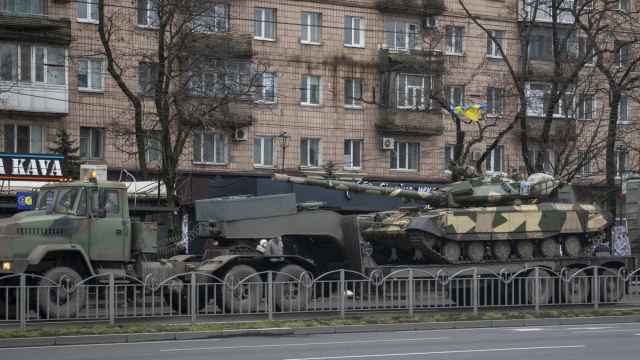The release of a collection of intercepted telephone conversations between rebel figures in the Donbass by the Joint Investigation Team (JIT) provides some extra detail and context to the interactions between them and Moscow around the shooting down of the MH17 airliner in 2014. It does not really change the general understanding of what happened, but it does represent an interesting evolution of the investigation’s tactics.
Some hot takes have suggested that the recordings demonstrate the Moscow had a much tighter command and control relationship over the rebels than hitherto believed, but if anything they actually suggest a messy, contradictory situation in which factions and leaders are competing with each other, at once currying favor with Moscow and also advancing their own interests.
Authority and its limitations
Of course, that doesn’t mean Moscow wasn’t trying to assert its control over the Donetsk and Lugansk 'People’s Republics’ and the motley assortment of militia commanders and political opportunists within them. In one memorable exchange, two field officers ruefully compared notes, realizing that they were both being issued orders, but from different — and often competitive — agencies, the Federal Security Service (FSB) and military intelligence (GRU):
“We get the orders from Moscow as well. It's the same with us.”
“But it's FSB in your case? Right?”
“Yes.”
“And it's GRU in ours. That's the only difference.”
How far were those orders necessarily obeyed? Discipline and control is a persistent theme. At one point, a fighter says “ we’re moving towards unity of command. What happens next is a bunch of men with a mandate from (Russian defense minister) Shoigu will arrive and kick the local warlords the fuck out of the units.”
Maybe this was the plan, or wishful thinking, or gossip, but it never really happened (though ironically that seems to be something taking place piecemeal this year).
Indeed, whatever authority Moscow had over many of the field commanders, it had to buy through support or threat. When Donetsk prime minister Alexander Borodai said that he was “carrying out orders and protecting the interests of one and only state, the Russian Federation,” this shouldn’t be taken simply at face value. This was, after all, at the time when he was begging, demanding and hoping for practical support from Moscow. He was a rebel entrepreneur making his pitch to a capricious and self-interested investor.
At different times the Russian state provided weapons — including the infamous Buk surface-to-air missile that shot down MH17, other combat equipment, and soldiers. But the Donbass was meant to be a cheap and arm’s-length adventure, and Moscow needed to be coaxed to invest.
The recordings also demonstrate the limitations of Moscow’s reach. At a political level, it is clear that it had a powerful role. One conversation, for example, makes it clear that the Kremlin vetted the composition of the local, self-proclaimed Security Council. As Denis Pushilin — who later would become head of the Donetsk government — hadn’t been on the approved list, he couldn’t be appointed.
In these interactions, as had been well known, it is presidential aide Vladislav Surkov who relays the voice of the Kremlin and fields the pleas and demands from the Donbass. At the same time, his authority is clearly limited both upwards and downwards. He can make promises, but cannot ensure that they are kept.
Or can he even assert himself over field commanders. At one point, he and Borodai grumble about Igor ‘Bes’ Bezler, an especially thuggish militia chief operating around Horlivka. They would like to remove him, but neither has the power.
Authority over political structures does not, after all, necessarily translate into battlefield command. A number of rebels, over the years, have died in mysterious incidents that are generally blamed on Ukrainian special forces but which were more likely Russian assassinations targeting especially recalcitrant or wilful commanders. That they have to resort to such methods in itself is a mark of their failure with less carnivorous means.
Leverage and its limitations
So while the recordings usefully illustrate the kinds of command complexities that had already been clear, they do not dramatically change our understanding of this messy conflict, at once a civil war, a foreign invasion, and an adventurers’ startup. Their release does, on the other hand, say some interesting things about the investigation.
First of all, they underscore how assiduously and effectively Dutch intelligence — possibly with some help from their friends — have been working to penetrate Russian communications security. The recordings were from what were meant to have been secure lines.
Ironically, the recordings include one rebel commander talking about “those special communication telephones, you know, that we have? Those that go through the Internet, do you know? Secure,” he added, in a double irony, adding that they can’t be bought, but are “gotten through Moscow. Through the FSB.”
Whereas in the past, the JIT has largely hung back from revealing anything that might indicate sources and methods, as well as specific names and personal details, it has shown much less reticence this time. Instead, we have a treasure trove of details, as the JIT lays out a series of questions to which it wants answers, including the names of individuals mentioned but not fully identified, as well as detailed queries about the roles of Donbass and Moscow figures.
Of course, the Kremlin is not going to respond in any meaningful way. In that context, this may be an attempt to name and shame. It's not so much in the hope of getting a more positive reply but at least to raise the costs of stonewalling.
As Moscow continues to try and shroud the Donbass war in general and the MH17 tragedy in particular in a cloud of innuendo, rumor, counterfactual and conspiracy theory, it is useful and appropriate to wrench back some control of the information space with a carefully-judged truth offensive.
Yet it is likely more than just that. One feature of the Information Age is the rise of the whistleblower. From Washington to Moscow, London to Brussels, free and semi-free states find themselves grappling with the challenge that both insiders and suitably-talented outsiders leak.
Whether out of corruption or laziness, ego or ideals, those with access to information will often feel the urge to spread the joy.
This has been a particular issue for the Kremlin, grappling with what if often poor operational security, as well as a political culture that has a strong streak of subversive retribution. Whether Navalny’s anti-corruption videos, or the genuine scoops of local investigative journalists, or Bellingcat’s revelations, much is based on this culture of holding an unresponsive regime to account through covert means.
The detailed questions the JIT throw out into the ether will almost certainly be read by people who know at least some of the answers. And in the day of encrypted messaging, burner phones and disposable email accounts, some of those answers may somehow make their way back. This is the essence of twenty-first century sleuthing: crowdsourcing.
A Message from The Moscow Times:
Dear readers,
We are facing unprecedented challenges. Russia's Prosecutor General's Office has designated The Moscow Times as an "undesirable" organization, criminalizing our work and putting our staff at risk of prosecution. This follows our earlier unjust labeling as a "foreign agent."
These actions are direct attempts to silence independent journalism in Russia. The authorities claim our work "discredits the decisions of the Russian leadership." We see things differently: we strive to provide accurate, unbiased reporting on Russia.
We, the journalists of The Moscow Times, refuse to be silenced. But to continue our work, we need your help.
Your support, no matter how small, makes a world of difference. If you can, please support us monthly starting from just $2. It's quick to set up, and every contribution makes a significant impact.
By supporting The Moscow Times, you're defending open, independent journalism in the face of repression. Thank you for standing with us.
Remind me later.








